The political and economic crisis exacerbated in recent years by the pandemic, the embargo and government policies has pushed thousands of mainly young Cubans into exile. Record numbers of Cubans fled their country in 2022 and more than 200,000 Cubans have fled to the U.S. already this year, according to government data, making the current exodus even worse than the migration waves of the '80s and '90s, combined. The exodus impacts an entire generation of young people who are suffering on both sides. Those who leave face a dangerous journey and the challenges to start a new life far from home while those who remain in Cuba witness the deterioration of the island and the mass departure of their loved ones.
Through love stories, we show the layered and complex realities of the current youth exodus, providing nuanced insight into migration, the desire for belonging and constructing a new life, while also focusing on the challenges to do so, while separated from their beloved ones. We focus on three couples, of whom one is still in Cuba, and the other managed to get to the U.S. recently.

Gabriel and Yossell
Gabriel Berrio Fabré, 18, and Yossell Machado Fígueredo, 21, grew up together in Los Pocitos, a barrio, or neighborhood in Havana. In January 2022, Yossell left with her mother for Suriname, a country that does not require a visa for Cubans. His sister was there, waiting for them to leave all together for the United States. As Yossell felt guilty and hurt about leaving his best friend behind, he did not say goodbye.
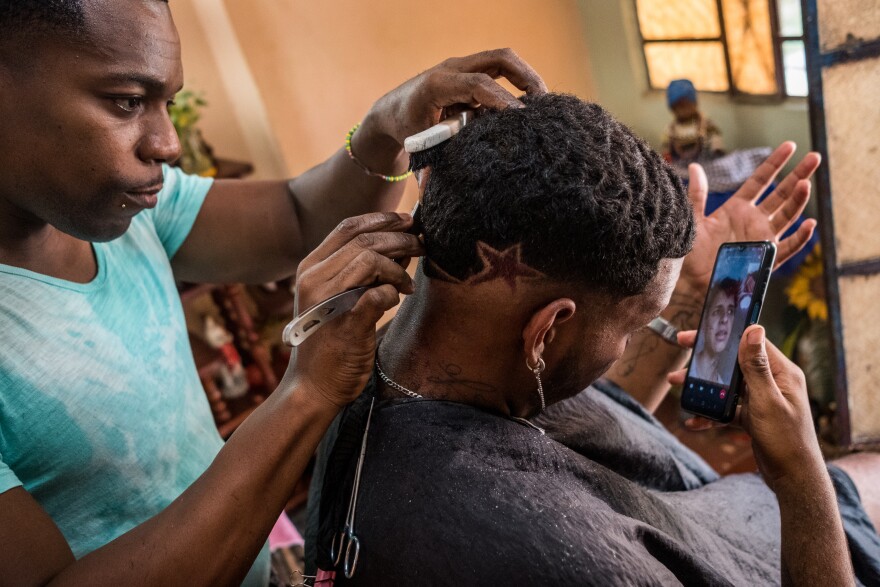
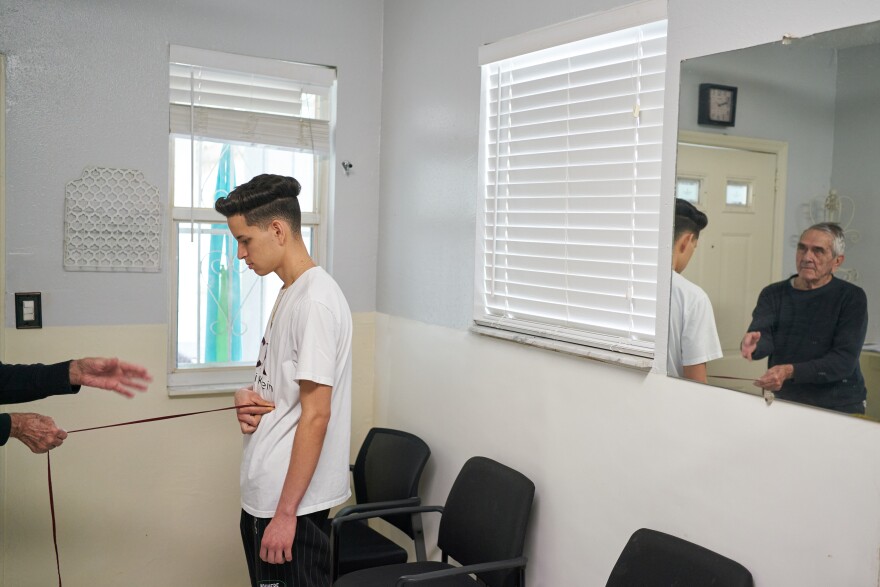

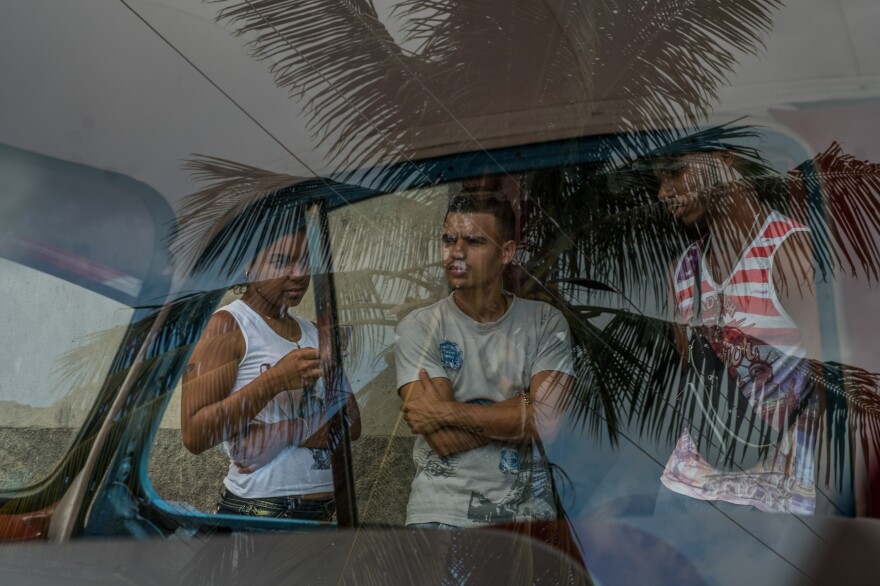
Gabriel continues to live in Los Pocitos, re-connecting with his sister and her boyfriend, and looking for opportunities as an artist. Yossell reached Tampa, where he is constructing a new life. He works in a restaurant and finally has the money to buy whatever he wants, but says it's hard to make new friends. He misses Gabriel every day.
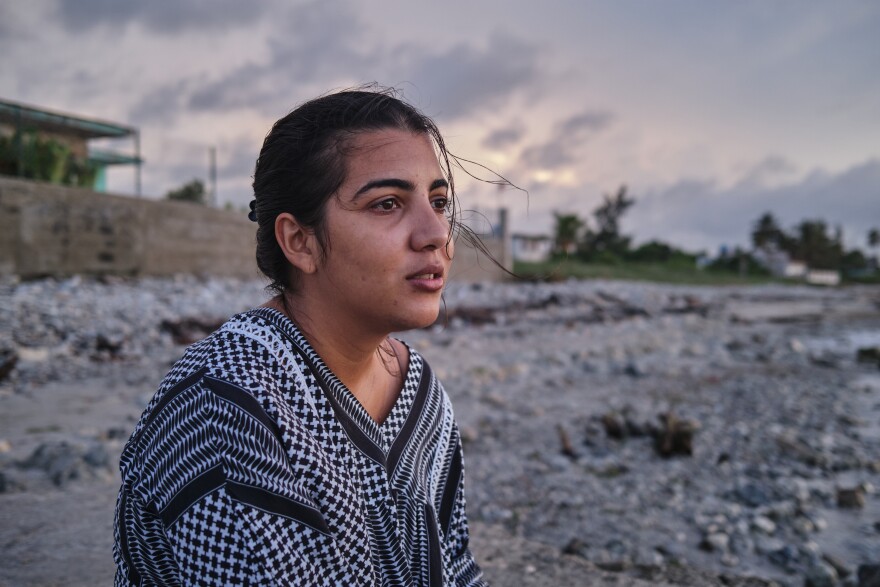
Lauren and Jan
Lauren Rodriguez Ruiz, 26, and Jan Pérez, 23, have been a couple for almost five years. They used to live together in Guanabo, a beach village northeast of Havana, in a little house near Lauren's grandmother. The couple was saving up to emigrate together by pursuing a master's degree in another country, a tactic often used by young Cuban professionals. However, one day in January 2022, a friend told them that he was leaving for Nicaragua to make the journey to the United States.
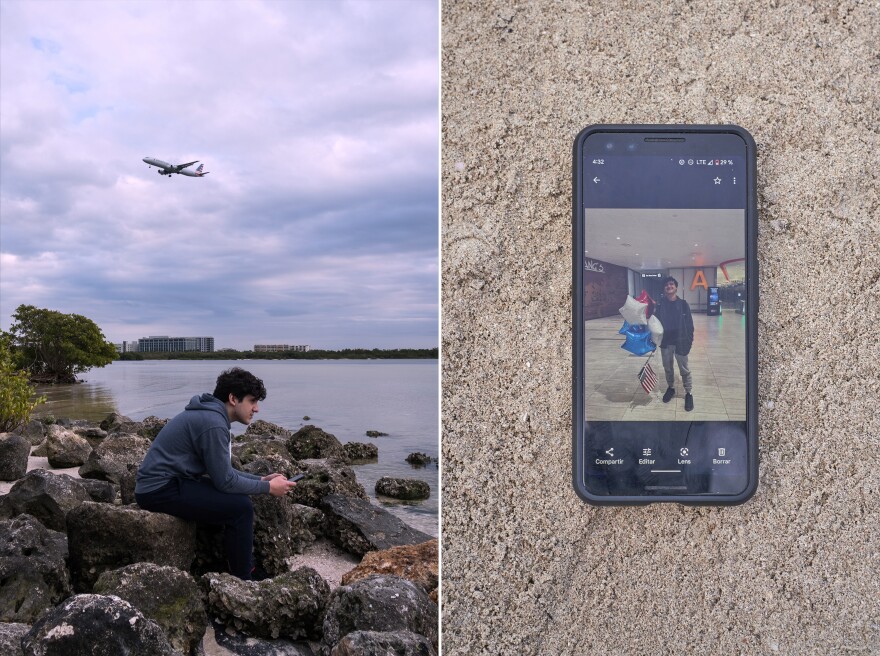
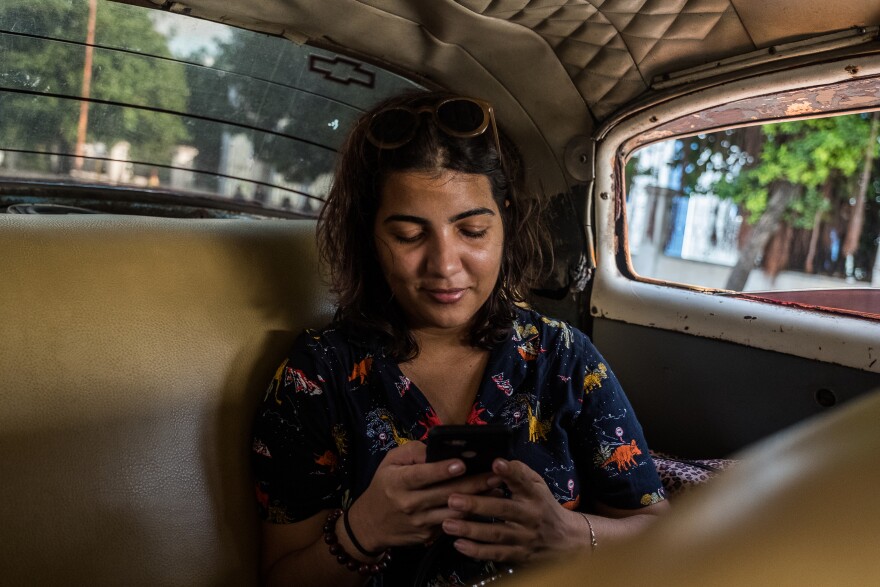
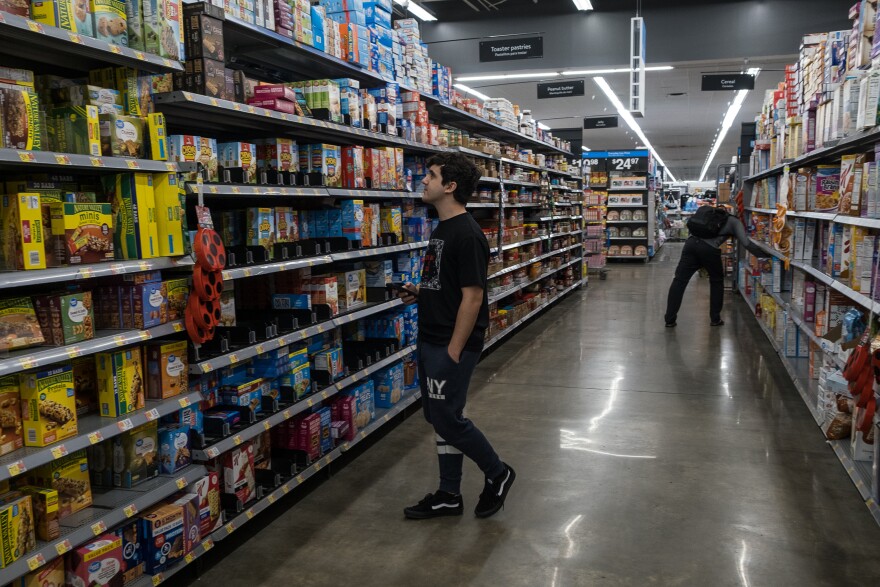
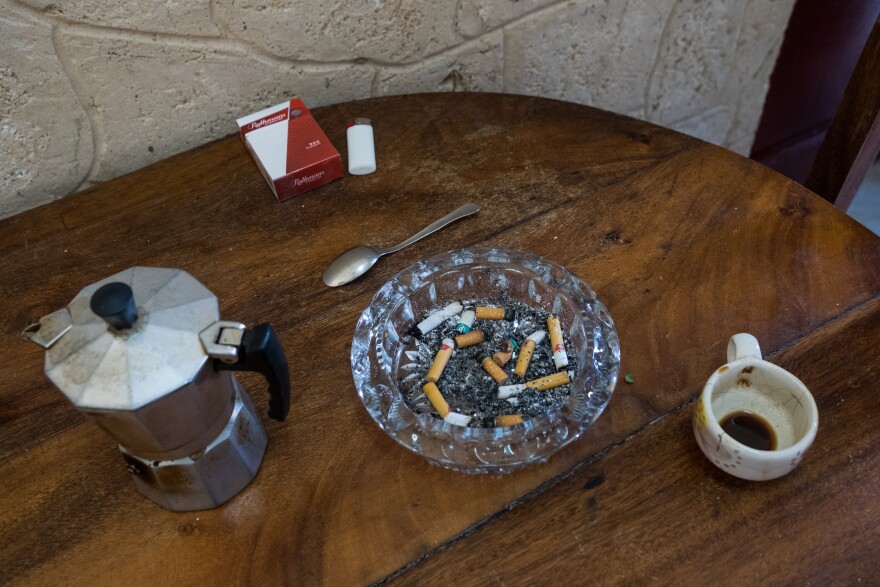
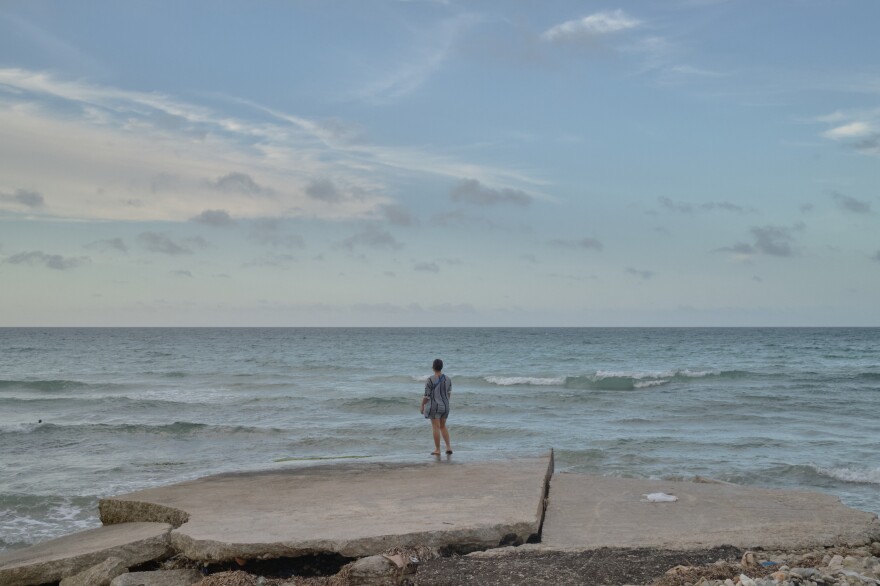
Lauren and Jan quickly decided to use the savings they had so that Jan could join their friend. As Lauren's parents are both abroad, she would have more possibilities to leave and meet Jan in the U.S. She is currently waiting for her visa to Chile, where her father lives, to be granted, whereas Jan rents a little studio in Tampa where he works as a freelance graphic designer. The couple hopes to reunite in the near future. In the meantime, they maintain their daily life through video calls.
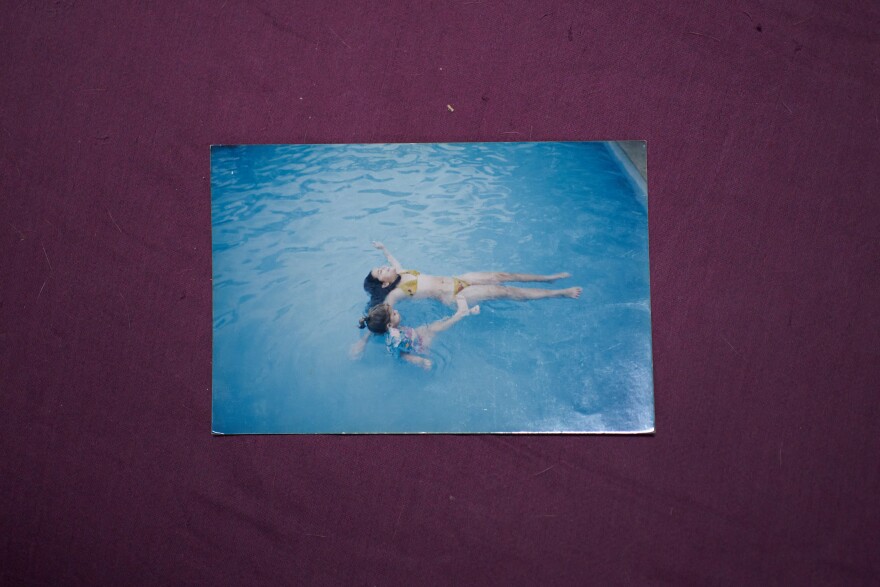
Laura and Maidel
Laura Hernández Ortega, 21, and Maidel Alemán, 26, are sisters of the same mother. They were born in Guanabacoa, a neighborhood on the outskirts of Havana. Maidel left Cuba in 2020. Finances were never a problem at home, since their great-aunt Gloria left for Las Vegas when the sisters were kids and has been sending money to the family ever since. All her life, Maidel suffered from the alcoholism of her stepfather, Laura's father, the main reason why she decided to emigrate with her partner.
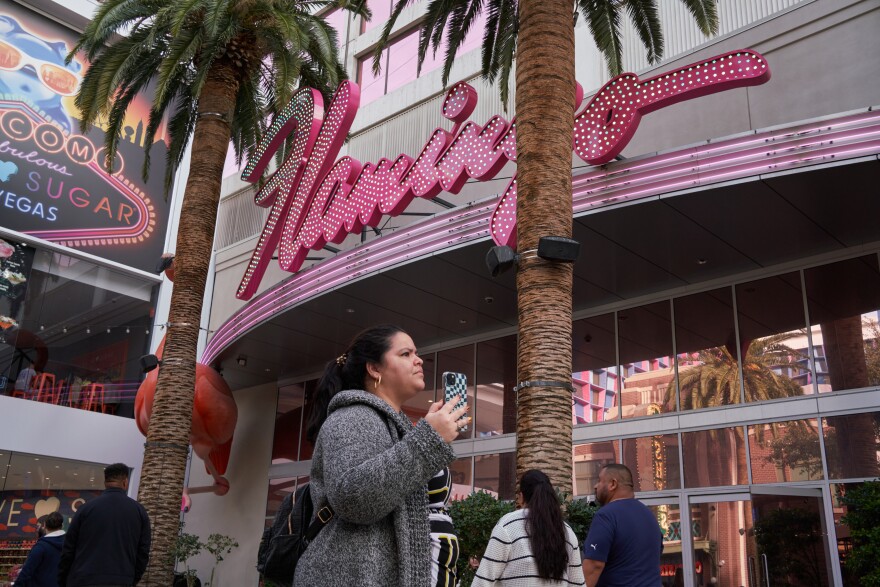
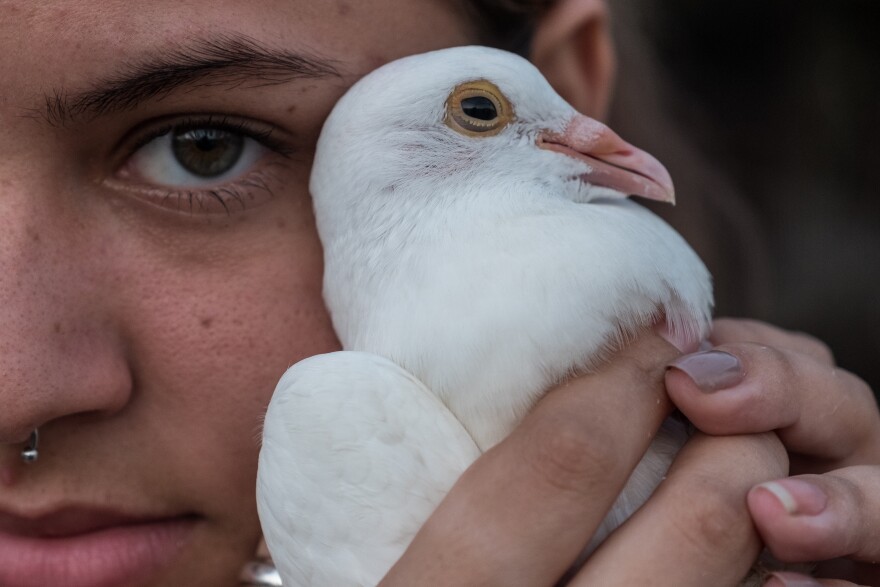
With the savings they had after selling all their belongings, they flew to Nicaragua. After a few months of work, she decided to make the journey to the U.S. Her boyfriend did not want to join her and she continued on her own. Maidel arrived in the U.S. in May 2021, where she lived in Miami for more than a year. Recently, she moved to Las Vegas to take care of Gloria, who is about to undergo major surgery.
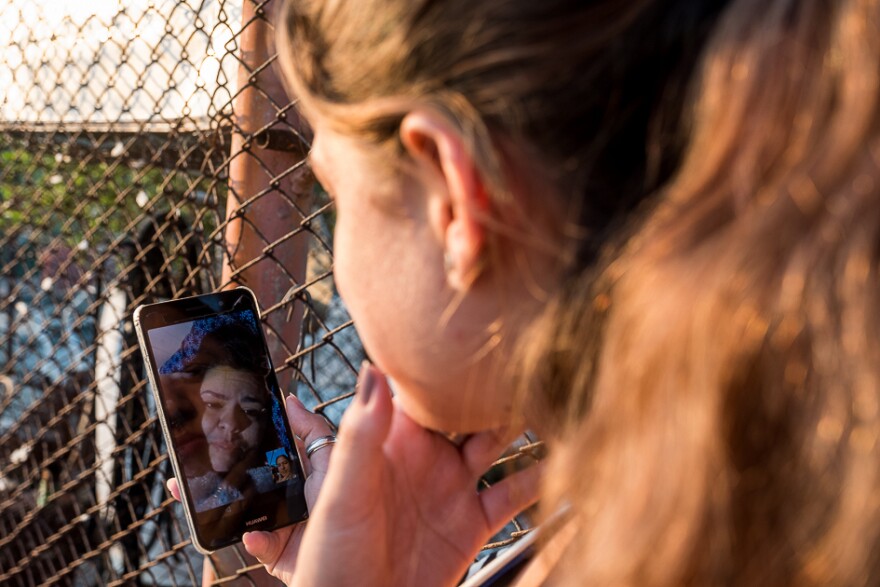
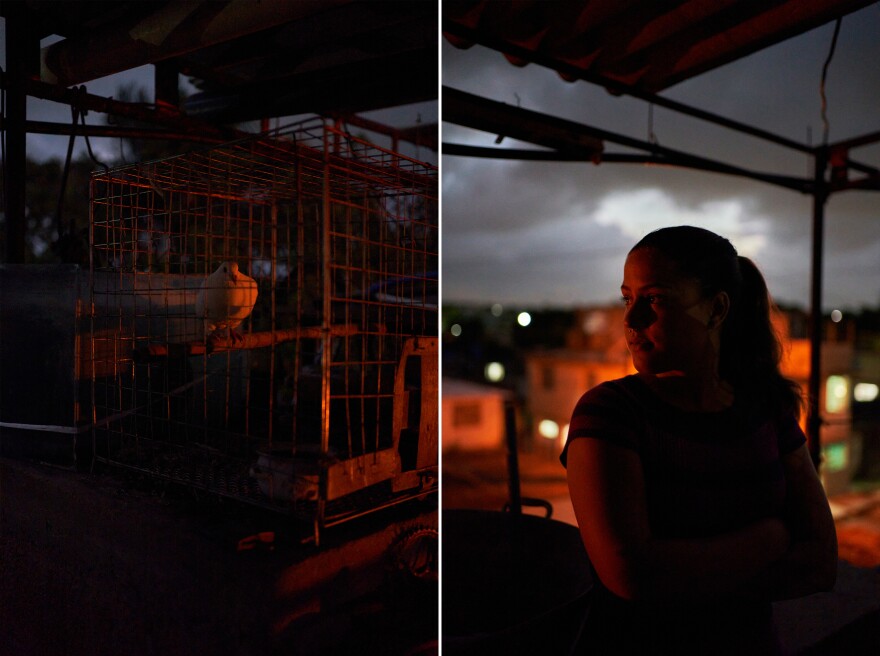
In a small apartment nestled inside a residence for seniors, Maidel has set up a manicure studio, where she mainly attends to the ladies who live on the property. Laura still lives in Guanabacoa with her father and her mother, who is also a manicurist. Every day she wonders if she will ever see Maidel again.
This project was supported by the Howard G. Buffett Fund for Women Journalists of the International Women's Media Foundation.
Natalia Favre is a documentary photographer based in Cuba and Argentina. You can see more of her work on her website, nataliafavre.com, or on Instagram at @nataliafavre_ . Sanne Derks is a documentary photographer based in Cuba and the Netherlands. You can see more of her work on her website, SanneDerks.com, or on Instagram at@sanne_derks_photojournalism.
Photos edited by: Virginia Lozano
Text edited by: Zach Thompson
Copyright 2023 NPR. To see more, visit https://www.npr.org. 9(MDM3NjYwMjA5MDE1MjA1MzQ1NDk1N2ZmZQ004))


